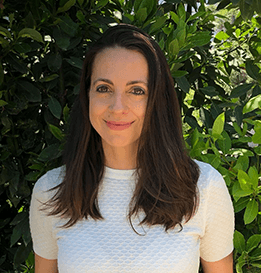

Legal director | Crystal Lagoons



Natalia Jiménez Romaguera
Legal director | Crystal Lagoons
Team size: Six
What are the most significant cases or transactions that your legal team has recently been involved in?
In general terms, we negotiate technology licensing and service agreements in Chile and internationally. These agreements involve diverse intellectual intangible assets such as patents, trademarks, trade dress, and copyrights and cover others such as trade secrets, sales agreements, leases, and other agreements over core elements of our technology. Our technology was originally developed in Chile (Crystal Lagoons was the first unicorn in Chile) and is a highly efficient, sustainable technology for the design, construction, and maintenance of water bodies of unlimited size, is a unique technology to date, and it is an honour and challenge to be a part of the Crystal Lagoons team. The life span of our agreement is of at least 40 years and covers a wide range of aspects such as the design, engineering, economic terms, auditing, and maintenance of the lagoon and the projects. Currently, we have approximately 1000 projects in different stages of planning, design, construction, or operation, in 60 countries around the world, with over 66 projects with lagoons already in operation around the world (over 15 in Chile), 113 to enter operations between 2023 and 2027, over 354 contracted agreements and 124 projects in development in the U.S.
Recently we closed two joint ventures in the US, in which Crystal Lagoons became a key element and player of the project, beyond licensing the technology. This is a new challenge for the team since it means being involved in the construction, financing, design, and insurance process and agreements among a wide array of matters that will last the life span of the project.
We have closed master agreements internationally to continue to expand the real estate success of the technology and the new Public Access Lagoon component of our lagoons. Some master agreements my team and I have directly been part of recently is the closing of a master agreement in India for the development of over 50 projects and other master agreements expanding our international presence such as the United Arab Emirates (10 projects), Colombia (8 projects), Costa Rica (6 projects), Israel (6 projects), and projects in Central Europe. In the last semester, we have also successfully negotiated single technology licensing agreements in our established markets such as Argentina, Spain, USA, Egypt, UAE, and other new jurisdictions (Nigeria, Guyana, Suriname and Turkey).
I also led a major corporate restructuring of the company which involved corporate and tax international restructuring of the company including countries such as Brazil, Chile, Netherlands, and the USA, which led to the arrival of our parent company to the US. This involves being up to date in corporate and tax matters on an international scale, which has been a great experience. The international nature and presence of Crystal Lagoons mean I often work hand in hand with local law firms, to review matters such as the enforceability of our agreements, protection of our intellectual property (our core asset and heart of our company), tax, compliance, and corporate matters while maintaining a strong local presence since approximately 70% of our employees are in Chile.
As much as I enjoy leading the negotiations of our more traditional application of our artificial lagoons for real estate, hospitality, and public access projects, I would love to be part of a project that involves a project with our industrial solutions that impact current problems of the world of water scarcity such as desalination and sustainable cooling systems and. Hopefully regulation worldwide will lead to companies choosing more sustainable alternatives.
Looking forward, what technological advancements do you feel will impact the role of in-house legal teams in the future the most? Which have you found most useful in your legal team?
As a lawyer that deals with technology on a day-to-day basis, I think of course AI will (and is already) impacting our role as in-house teams, in which we as in-house lawyers and together with an intellectual property team must inform the company on how to correctly use and balance the alternative benefits and risks AI may have for each industry (not only confidentiality and protection of intangible assets must be taken into account, but also issues such as ownership of creations developed with the support of AI).